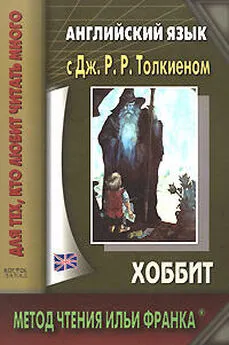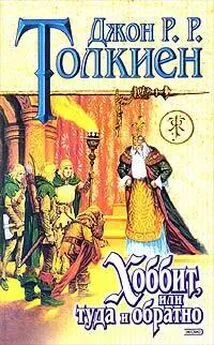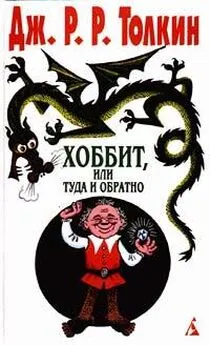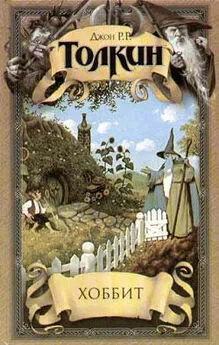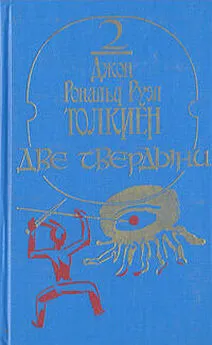Джон Толкиен - Английский язык с Дж. Р. Р. Толкиеном. Хоббит
- Название:Английский язык с Дж. Р. Р. Толкиеном. Хоббит
- Автор:
- Жанр:
- Издательство:АСТ, Восток-Запад
- Год:2008
- Город:Москва
- ISBN:978-5-17-048593-2, 978-5-478-00597-9
- Рейтинг:
- Избранное:Добавить в избранное
-
Отзывы:
-
Ваша оценка:
Джон Толкиен - Английский язык с Дж. Р. Р. Толкиеном. Хоббит краткое содержание
В книге предлагается произведение на английском языке Джона Р. Р. Толкиена «Хоббит», адаптированное (без упрощения текста оригинала) по методу Ильи Франка. Уникальность метода заключается в том, что запоминание слов и выражений происходит за счет их повторяемости, без заучивания и необходимости использовать словарь.
Пособие способствует эффективному освоению языка, может служить дополнением к учебной программе.
Предназначено для студентов, для изучающих английский язык самостоятельно, а также для всех интересующихся английской культурой.
Пособие подготовила Ольга Ламонова.
Английский язык с Дж. Р. Р. Толкиеном. Хоббит - читать онлайн бесплатно полную версию (весь текст целиком)
Интервал:
Закладка:
“No time for it, ” said the wizard. “But — “said Bilbo again.
“No time for that either! Off you go!”
To the end of his days Bilbo could never remember how he found himself outside, without a hat, walking-stick or say money, or anything that he usually took when he went out; leaving his second breakfast half-finished and quite unwashed-up, pushing his keys into Gandalf’s hands, and running as fast as his furry feet could carry him down the lane, past the great Mill, across The Water, and then on for a whole mile or more. Very puffed he was, when he got to Bywater just on the stroke of eleven, and found he had come without a pocket-handkerchief!
“Bravo (браво)!” said Balin who was standing at the inn door (сказал Балин, который стоял у двери таверны) looking out for him (высматривая его). Just then (как раз тогда) all the others came round the corner (все остальные вышли из-за угла) of the road from the village (той дороги, что вела из деревни). They were on ponies (они были верхом на пони), and each pony was slung about (и каждый пони был нагружен; tosling (slung) — метать/изпращи/; подвешивать /на ремне/; sling — праща; ремень ) with all kinds of baggages (всякого рода багажом), packages (тюками), parcels (свертками), and paraphernalia (и другим личным имуществом/принадлежностями). There was a very small pony (был там и очень маленький пони), apparently for Bilbo (явно для Бильбо).
“Up you two get (вы двое, по седлам; to get up — вставать, подниматься, взбираться ), and off we go (и мы отправляемся)!” said Thorin.
“I’m awfully sorry (мне ужасно жаль), ” said Bilbo, “but I have come without my hat (но я пришел без своей шляпы), and I have left my pocket-handkerchief behind (и я позабыл свой носовой платок), and I haven’t got any money (и у меня совсем нет с собой денег). I didn’t get your note (я не получил вашей записки) until after 10. 45 (до 10. 45) to be precise (что бы быть точным). ”
“Don’t be precise (не будьте точным), ” said Dwalin, “and don’t worry (и не волнуйтесь)! You will have to manage without pocket-handkerchiefs (вам придется обходиться без носовых платков), and a good many other things (и большого количества других вещей), before you get to the journey’s end (до того, как вы достигните завершения путешествия). As for a hat (а что до шляпы), I have got a spare hood (у меня есть запасной капюшон) and cloak in my luggage (и накидка, у меня в багаже). ”
bravo [ˈbrɑ: vǝʋ] paraphernalia [ˌpærǝfǝˈneɪlɪǝ] luggage [ˈlʌɡɪdʒ]
“Bravo!” said Balin who was standing at the inn door looking out for him. Just then all the others came round the corner of the road from the village. They were on ponies, and each pony was slung about with all kinds of baggages, packages, parcels, and paraphernalia. There was a very small pony, apparently for Bilbo.
“Up you two get, and off we go!” said Thorin.
“I’m awfully sorry, ” said Bilbo, “but I have come without my hat, and I have left my pocket-handkerchief behind, and I haven’t got any money. I didn’t get your note until after 10. 45 to be precise. ”
“Don’t be precise, ” said Dwalin, “and don’t worry! You will have to manage without pocket-handkerchiefs, and a good many other things, before you get to the journey’s end. As for a hat, I have got a spare hood and cloak in my luggage. ”
That’s how (вот как) they all came to start (все они отправились в путь), jogging off from the inn (двигаясь медленно от таверны; to jog — трясти; тащиться ) one fine morning (одним прекрасным утром) just before May (как раз перед /началом/ мая), on laden ponies (на груженных пони); and Bilbo was wearing a dark-green hood (и Бильбо был одет в темно-зеленый капюшон) (a little weather-stained (немного выцветший от солнца; weather — погода; непогода; stain — пятно ) and a dark-green cloak (и темно-зеленый плащ) borrowed from Dwalin (позаимствованный у Двалина). They were too large for him (они были слишком велики для него), and he looked rather comic (и он выглядел достаточно комично). What his father Bungo (что бы его отец, Банго) would have thought of him (подумал бы о нем), I daren’t think (я не осмеливаюсь подумать). His only comfort was (его единственным утешением было то) he couldn’t be mistaken for a dwarf (что его не могли спутать по ошибке с гномом), as he had no beard (так как у него не было бороды).
They had not been riding very long (они скакали не очень долго) when up came Gandalf (когда /их/ нагнал Гэндальф) very splendid on a white horse (/очень/ великолепный на белом коне). He had brought a lot of pocket — handkerchiefs (он привез кучу носовых платков), and Bilbo’s pipe and tobacco (и трубку, и табак Бильбо). So after that (итак, после этого) the party went along very merrily (группа продолжила путь очень весело), and they told stories (и они рассказывали истории) or sang songs (или пели песни) as they rode forward all day (пока они ехали вперед весь день), except of course when they stopped for meals (за исключением, конечно же, когда они останавливались для принятия пищи).
weather-stained [ˈweðǝsteɪnd] mistaken [mɪˈsteɪkǝn] merrily [ˈmerɪlɪ]
That’s how they all came to start, jogging off from the inn one fine morning just before May, on laden ponies; and Bilbo was wearing a dark-green hood (a little weather-stained) and a dark-green cloak borrowed from Dwalin. They were too large for him, and he looked rather comic. What his father Bungo would have thought of him, I daren’t think. His only comfort was he couldn’t be mistaken for a dwarf, as he had no beard.
They had not been riding very long when up came Gandalf very splendid on a white horse. He had brought a lot of pocket-handkerchiefs, and Bilbo’s pipe and tobacco. So after that the party went along very merrily, and they told stories or sang songs as they rode forward all day, except of course when they stopped for meals.
These didn’t come quite as often (это случалось не так часто; to come — идти, приходить, наступать ) as Bilbo would have liked them (как того хотелось бы Бильбо), but still he began to feel (но, все равно, он начинал чувствовать) that adventures were not so bad after all (что приключения были не так уж и плохи, в конце-то концов).
At first they had passed through hobbit-lands (сначала они проехали через земли хоббитов), a wide respectable country (просторную респектабельную страну) inhabited by decent folk (населенную порядочным народом), with good roads (с хорошими дорогами), an inn or two (одной или двумя тавернами), and now and then (и время от времени) a dwarf or a farmer (/они видели/ гнома или фермера) ambling by on business (семенящего по своим делам; to amble — идти иноходью; идти легким шагом ). Then they came to lands (затем они приехали в земли) where people spoke strangely (где люди говорили странно), and sang songs Bilbo had never heard before (и пели песни, которые Бильбо никогда раньше не слышал). Now they had gone on (теперь они заехали) far into the Lone-lands (глубоко в Заброшенные Земли), where there were no people left (где не осталось ни людей), no inns (ни таверн), and the roads grew steadily worse (и дороги становились постепенно все хуже ; to grow (grew, grown) — расти, увеличиваться; зд. как глагол-связка в составном именном сказуемом — делаться ). Not far ahead were dreary hills (не далеко впереди были мрачные холмы), rising higher and higher (поднимающиеся все выше и выше), dark with trees (темные от /растущих на них/ деревьев). On some of them were old castles (на некоторых из них были старые замки) with an evil look (с зловещим видом), as if they had been built by wicked people (словно были они построены дурными людьми). Everything seemed gloomy (все казалось мрачным), for the weather that day (так как погода в тот день) had taken a nasty turn (испортилась: «приняла отвратительный оборот»).
respectable [rɪˈspektǝb (ǝ) l] inhabited [ɪnˈhæbɪtɪd] castle [ˈkɑ: s (ǝ) l]
These didn’t come quite as often as Bilbo would have liked them, but still he began to feel that adventures were not so bad after all.
At first they had passed through hobbit-lands, a wide respectable country inhabited by decent folk, with good roads, an inn or two, and now and then a dwarf or a farmer ambling by on business. Then they came to lands where people spoke strangely, and sang songs Bilbo had never heard before. Now they had gone on far into the Lone-lands, where there were no people left, no inns, and the roads grew steadily worse. Not far ahead were dreary hills, rising higher and higher, dark with trees. On some of them were old castles with an evil look, as if they had been built by wicked people. Everything seemed gloomy, for the weather that day had taken a nasty turn.
Mostly it had been (по большей части /погода/ была) as good as May can be (такой хорошей, какой она может быть в мае), even in merry tales (даже в веселых историях), but now it was cold and wet (но теперь она была холодной и сырой; wet — мокрый; дождливый ). In the Lone-lands they had to camp when they could (в Заброшенных Землях им пришлось ночевать, где придется: «где они могли»), but at least it had been dry (но, по меньшей мере, было сухо).
Читать дальшеИнтервал:
Закладка:
